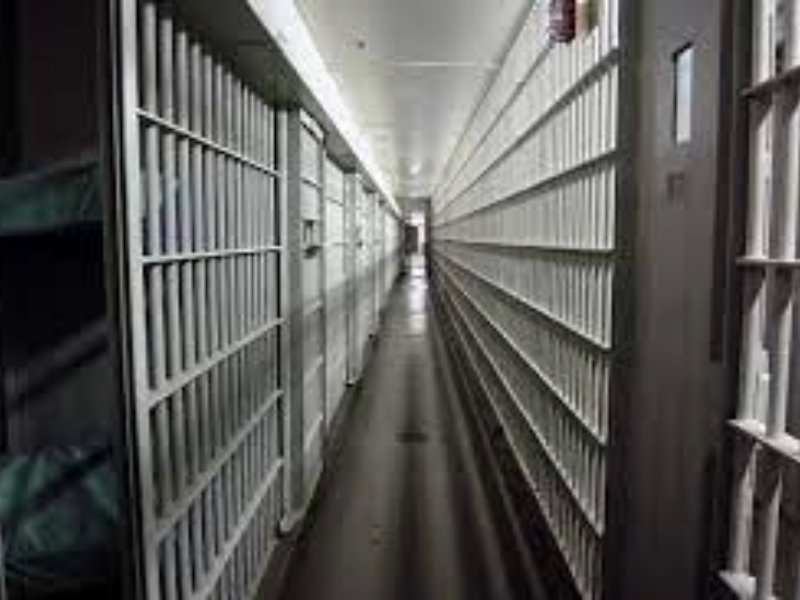Prevailing environment in prisons

- 187
- 0
Our prisons have become a breeding place for criminals. The overcrowding and violation of human rights of jail inmates in our main Jails across the country is no secret.
The prevailing environment in our prison is so grave that even juvenile prisoners, who are lodged in the jails for minor offences, turn into hard criminals by living alongside hardened criminals. The cases of custodial torture with impunity inside the jails are a known fact. Adiala Jail is a case in point. There is unurgent system for the overhaul of the entire jail system which is need of the hour.In fact, minor offenders are also turned into hardened criminals when living in the Pakistani prisons, which needs immediate reform.
To bring about change in prison laws, the prison laws in each province should be amended, especially prison reforms to make the prison environment free of torture and eliminate all forms of inhuman or degrading treatment. Pakistan needs to move beyond the unusual practice of pre-trial detention and find ways to reduce its prison population. Basic facilities including housing, health care, education, recreation and food services should be provided according to internationally recognized standards and prisoners should be taught vocational skills to facilitate their reintegration into society. But what is most needed to achieve reform is a change in mindset so that a person can come out of prison and become a useful citizen of the society.
To beging with, there is an urgent need for mental reformation and rehabilitation of criminals in prisons. De-emphasizing the mental rehabilitation of offenders perpetuates a cycle in which crime does not decrease and offenders are forced to re-offend. It is a recognized fact that criminal rehabilitation programs play an important role in reducing the likelihood of recidivism. Developed countries, such as Norway and Sweden, have demonstrated the success of comprehensive efforts to rehabilitate offenders and have set international standards in this regard. In these countries, the mental rehabilitation of criminals is not seen merely as a formality, but as an integral part of the justice system. By investing in education, vocational training and psychosocial interventions, these nations have significantly improved their reformation rates and improved outcomes for both offenders and society as a whole. This is the reason why crime rates are low in these societies. In contrast, Pakistani prisons often lack adequate resources for the mental rehabilitation of criminals.
The focus is on punitive measures rather than the long-term reintegration of offenders into society. They are pushed towards punishment rather than reform. Such an approach fails to address the root causes of criminal behavior and perpetuates a system where individuals are more likely to return to a life of crime after release. It is important that the criminal justice system recognizes the importance of mental rehabilitation of offenders and allocates resources accordingly. Implementation of evidence-based programs, such as cognitive behavioral therapy (CBT), drug and alcohol treatment, and training, can contribute to successful outcomes in offender rehabilitation. Restorative justice often focuses on repairing the harm caused by criminal behavior through dialogue between the offender and the victim. This approach has generally been effective in promoting accountability and empathy, which includes There have been positive results for both individuals and society. Implementing restorative justice practices can promote a more holistic approach to mental rehabilitation in prisons.
By learning from the successful models of developed countries and adapting them to the local context, Pakistan can make progress in breaking criminalization and promoting the reintegration of criminals into society as law-abiding citizens. Pakistan Women incarcerated in prisons, who are already socially discriminated against, are also discriminated against in the prison as the majority of the staff is male. Women with children also lack access to nutritious food and adequate education. Nationwide, there is a lack of legislation when it comes to the detention of female prisoners, with some provinces having mixed-gender prisons. are, while others have gender-segregated prisons. Female prisoners also face increased risks of abuse as they are sometimes forced to share space with men due to overcrowding. According to a report by Justice Project Pakistan, in Faisalabad district, 82 out of 134 female prisoners experienced sexual violations between 2006 and 2012. Women often do not have access to sanitary products. This is in violation of international norms, which provide guidelines for the treatment of women prisoners, including the provision of sanitary products when necessary.
Pakistan's prisons have an atmosphere of surveillance and repression where those involved in poverty, minority, ethnic or religious identity, sub-nationalism and dissident political activities are punished under the guise of protecting national security. Reforming the prison system is a critical issue because it requires not only the introduction of new laws and systems, but also the elimination of discriminatory practices that lead to miscarriages of justice. The prison laws in the province should be amended, particularly prison reforms to make the prison environment torture-free as well as eliminate all forms of inhuman or degrading treatment. Pakistan needs to move beyond the unusual practice of pre-trial detention and find ways to reduce its prison population. Basic facilities including housing, health care, education, recreation and food services should be provided according to internationally recognized standards and prisoners should be taught vocational skills to facilitate their reintegration into society.
But what is most needed to achieve reform is a change in mindset so that a person can come out of prison and become a useful citizen of the society.

















































